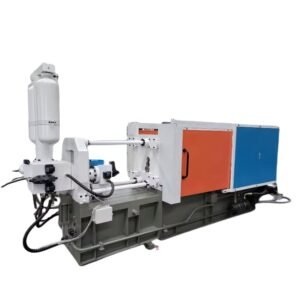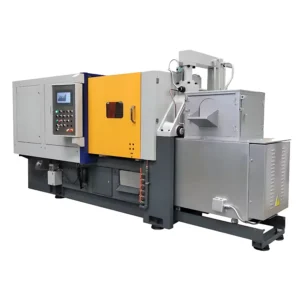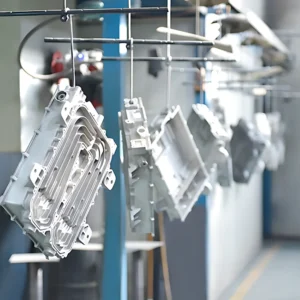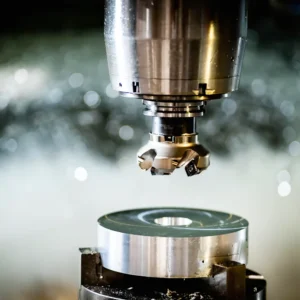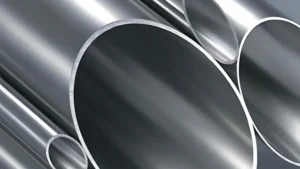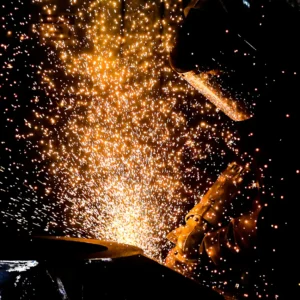Machine tools are important equipment used in the manufacturing industry for forming and machining metals and other rigid materials. Common machine tools include milling machines, lathes, and drilling machines.
These are just a few examples, but in the next sections, we will look at different types of machine tools in more depth, including prices and applications.
What Is a Machine Tool?
Machine tools are the core components of machining, which is a type of machining equipment for the purpose of cutting, boring, grinding, shearing, and so on. These are of the following types: simple manual tools (e.g., wire EDM machines) and precision machining using computerized numerical control (CNC).
9 Basic Types of Machine Tools
There are different types of machine tools, each with its own uses and benefits. Let’s take a look at 9 of the most common types of machine tools.
CNC Machine Tools
CNC machine tools are specialized computer-controlled equipment that automate a variety of machining tasks. In machining, CNC (also known as Computer Numerical Control (CNC)) allows computers to operate machine tools. CNC machines include a variety of equipment, such as
- Drill: Used to create highly accurate holes.
- Lathes: Rotate workpieces to perform tasks such as cutting, grinding and drilling.
- Milling machines: Remove material from the workpiece to create complex shapes and surfaces.
- Grinder: Uses grinding wheels to achieve fine finishes or precise dimensions.
- Router: Used to cut and shape materials, often for woodworking and plastics processing.
- 3D printers: Use materials such as plastic, resin, or metal to create objects layer by layer.
These tools are programmed with specific instructions that the CNC machine will follow to the letter. This programming ability allows for the production of complex designs and shapes that would be difficult to achieve by hand.
This technology is extremely important in industries such as automotive, aerospace, and electronics, where precision and efficiency are required.
Read more calculate the hourly cost of CNC machining.

Turning Machines
Turning machines, also known as lathes. They work by rotating the workpiece around a fixed axis while a cutting tool for cutting, polishing, knurling, drilling, and other various processes. Mainly used for cutting screws, nuts, and other parts, and is the basic equipment for metal processing, wood processing, and other industries.
- Price range: $5,000 – $50,000
- Lifespan: 10 – 20 years
- Accuracy and tolerances: tolerances of 0.01mm – 0.05mm
Grinder
Grinding machines use grinding wheels as tools to refine the surfaces of parts to achieve higher precision. There are several types of grinding machines, including surface grinders, cylindrical grinders, and bench grinders. Each type of grinder has different working characteristics.
- Price range: $2,000 – $50,000 USD
- Lifespan: 5 – 15 years
- Accuracy and Tolerance: Tolerances between 0.001 mm – 0.01 mm
Planers
A planer is a machine designed to perform flat and smooth surfaces with a single tool. A planer is similar to a gear cutter, but it is larger and suitable for machining over a larger area. It is especially suited for precision horizontal, vertical, and beveled cuts on workpieces.
- Price range: $10,000 – $100,000 USD
- Lifespan: 10 – 25 years
- Accuracy and Tolerance: Tolerances between 0.01 mm – and 0.05 mm
Boring Machines
Boring machines are primarily used to expand and refine existing metal parts to achieve high precision and smooth surfaces. Because of their ability to achieve precise tolerances, boring machines are commonly used in manufacturing industries that require complex production of engine blocks, transmissions, and a variety of complex mechanical components.
- Price range: $10,000 – $100,000 USD
- Lifespan: 10 – 20 years
- Accuracy and Tolerance: Tolerances between 0.01 mm – and 0.05 mm
Broaching Machines
Broaching machines are specialized machines that utilize toothed tools to remove material. They are primarily used in applications that require precision machining to produce unique shapes such as splines, holes, or contours in metalwork.
- Price range: $15,000 – $50,000 USD
- Lifespan: 5 – 15 years
- Accuracy and Tolerance: Tolerances between 0.01 mm – 0.1 mm
Slotting Machine
The Slotting Machine is used more for shaping and cutting materials than any other machine tool. It accomplishes the machining of grooves and grooves that cannot be done by other machine tools.
- Price range: $10,000 – $60,000
- Lifespan: 10 – 15 years
- Accuracy and Tolerance: Tolerances between 0.1mm – 0.5mm
Shapers
Shapers are machines that utilize a single cutting tool in a linear motion. It is suitable for machining complex profiles such as flat surfaces and grooves. Although it is seldom used in modern production, it is still essential for some delicate work.
- Price range: $1,000 – $10,000
- Lifespan: 5 – 15 years
- Accuracy and Tolerance: Tolerances between 0.01mm and 0.1mm
Screw Machines
Screw Machines is a fully automatic lathe capable of quickly machining small parts such as screws and bolts. It is suitable for the production of turning parts and fasteners with high precision and repeatability.
- Price Range: $10,000 – $60,000
- Lifespan: 10 – 20 years
- Accuracy and Tolerance: Tolerances between 0.01mm-0.05mm
What Are the Types of Cutting Tools Used in Machine Tools?
Understanding the different types of cutting tools and machining them is essential to provide a true reference for your project. Below we will introduce the various cutting tools and their areas of application.

Indexable Cutting Tools
Indexable Cutting Tools are equipped with replaceable blades. Ideal for work operations where tools are frequently replaced due to use or damage.
- Applications: General milling, drilling
- Examples: Indexable drills, milling cutters
- Cutting materials: Wide range, including metals and plastics
Single-Point Cutting Tools
Single-point cutting tools are used in lathes, shapers, and planers. They have a single cutting edge that removes material from the workpiece.
- Applications: Turning, shaping
- Examples: Lathe tools, planer tools
- Materials Cut: Metals, plastics, wood
Multi-Point Cutting Tools
Multi-blade cutting tools have multiple blades and can work simultaneously, greatly improving processing efficiency.
- Applications: Milling, drilling
- Examples: Milling cutters, drills, broaches
- Materials Cut: Metals, alloys, composites
Machining Centers
A machining center is a precision CNC (Computer Numerical Control) machine designed to handle a wide variety of machining tasks and processes. It integrates multiple tools into one comprehensive unit for efficient and versatile operation.
- Price range: $20,000 – $150,000
- Lifespan: 10-30 years
- Accuracy and Tolerance: Tolerance is between 0.005mm – 0.01mm
How To Choose the Right Machine Tool For Your Project?
Before selecting a service, the decision should be based on a thorough understanding of the project requirements and the capabilities of the various machine tools. Below is a selection guide that will help you make an informed choice for your project.
Consider Material Compatibility
Different machine tools are optimized for different materials. For projects involving hard metals such as iron and steel, it is recommended to choose a machine tool with appropriate cutting strength and durability.
Assess the Dimensions of the Workpiece
If the size of the material you need to process is a large size project. For example: shipbuilding and aircraft, it is recommended to choose a larger milling machine or lathe. For example: grinding machine tools, and CNC machine tools.
Analyze Yield
For high-volume production, such as in the automotive industry, automated CNC (computer numerical control) machines significantly increase throughput by precisely controlling the cutting and machining processes. In addition, automated CNC machine tools also reduce manual errors and optimize the production process, making the manufacturing process more efficient and cost-effective.
Assess the Complexity of the Operation
Complex shapes and designs may require advanced machine tools with multi-axis capabilities, such as vertical machining centers.
Summarize
Machine tools are a core component of modern manufacturing, providing businesses with high-precision and high-efficiency parts. However, its benefits can only be fully realized when used correctly and in a safe manner.
If you require high quality machining services, we are here to help. Contact us today for a project quotation.

